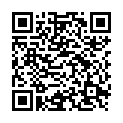|
|
|
| Module code: UI-T-NWT |
|
|
2V (2 hours per week) |
|
3 |
| Semester: 7 |
| Mandatory course: yes |
Language of instruction:
German |
Assessment:
Written exam, 90 min.
[updated 04.01.2025]
|
UI-T-NWT (P251-0032) Environmental Technologies, Bachelor, ASPO 01.10.2021
, semester 7, mandatory course, technical
UI-T-NWT (P251-0032) Environmental Technologies, Bachelor, ASPO 01.10.2023
, semester 7, mandatory course, technical
|
30 class hours (= 22.5 clock hours) over a 15-week period.
The total student study time is 90 hours (equivalent to 3 ECTS credits).
There are therefore 67.5 hours available for class preparation and follow-up work and exam preparation.
|
Recommended prerequisites (modules):
None.
|
Recommended as prerequisite for:
|
Module coordinator:
Prof. Dr. Steffen Knapp |
Lecturer: Prof. Dr. Steffen Knapp
[updated 16.09.2020]
|
Learning outcomes:
Network technologies play a crucial role in the collection of environmental data. By connecting devices and systems, processes can be optimized, resources used more efficiently and emissions reduced.
Network technologies can thus make a significant contribution to reducing the ecological footprint of companies and organizations. In addition to learning professional skills, this module focuses in particular on the studentsí methodological, social and personal skills. In preparing and presenting their seminar papers, students are expected to demonstrate self-motivation and an ability to work towards goals.
The students will demonstrate their ability to work in a team, organize themselves and take responsibility.
After successfully completing this module, students will be able to:
- define different types of network technologies
- classify current trends and developments in the field of network technologies
- evaluate and select suitable network technologies for the collection of environmental data
Due to the seminar´s specialized teaching method, graduates of the course will be able to:
- prove their ability to develop in terms of communication and teamwork.
- further develop their critical thinking and reflection skills.
- analyze complex problems and evaluate solutions.
- lead discussions and present their ideas in a well-founded and convincing manner, including a well-reasoned chain of arguments.
- recognize the professional and social strengths and weaknesses of team members and integrate them in a targeted manner.
[updated 04.01.2025]
|
Module content:
This seminar will deal with current trends and developments in the field of network technologies related to the collection of environmental data.
The topics to be covered in the seminar will be announced at the beginning of the seminar.
[updated 04.01.2025]
|
Recommended or required reading:
Journal articles on network technologies, depending on the assigned seminar topics.
[updated 04.01.2025]
|

